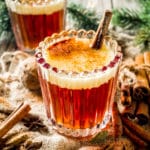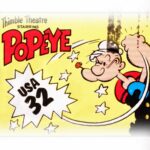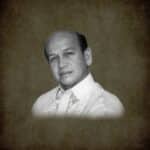National Bootlegger’s Day is celebrated on January 17, every year, to mark several key events — the start of prohibition in the U.S., the distillation of Templeton Rye whiskey, and the birthday of the infamous gangster Al Capone. What is most interesting is how all three events are interconnected too. It was the onset of prohibition that prompted both Capone and farmers in Templeton, Iowa, to distill their own whiskey to sell. This was how the famous Templeton Rye whiskey was born, and its popularity spread like wildfire during prohibition… so much so that it became Al Capone’s favorite whiskey.
History of National Bootlegger’s Day
Just as Robin Hood is famed for being an outlaw, we all love a little subversion every now and then. With National Bootlegger’s Day, we get a chance to raise a toast to the daring bootleggers of prohibition who painted the otherwise hazardous occupation in a more romantic light, and caused many bootleggers to become the stuff of legends. The first observance of National Bootlegger’s Day was in 2015, instated by Infinium Spirits to celebrate the birth of Templeton Rye, a whiskey distilled by farmers in Templeton, Iowa, during the heights of the prohibition. Though Infinium Spirits sells a variety of brands, Templeton Rye has a special day to itself owing to its legendary history. The term bootlegger itself has its origins in Midwest America, during the 1880s. White folk would often conceal flasks of liquor in their boots when engaging in illegal liquor trade with Native Americans, and this nifty method of hiding liquor in boots was utilized by the military too. Soldiers would often sneak alcohol into base camp by hiding the flasks in their boots. Thus the term came to be used for any smuggler of liquor who smuggled booze over land. Those who smuggled alcohol via water were referred to as ‘rum-runners’. Although prohibition was declared on January 17, 1920, the gangsters and other underworld participants refused to let this down their vibe. When one thinks of the 1920s, immediately lavish, jazz-filled, and liquor-fuelled soirees come to mind, and so these could not come to a halt because of the law. While others hired bootleggers to smuggle alcohol from Canada and Mexico, Alphonse Kerkhoff decided to capitalize on both production and distribution by hiring farmers in Templeton, Iowa, to distill their own whiskey and sell it. This lucrative endeavor was a success on all counts, as Templeton Rye spread to speakeasies across Omaha, Kansas City, and Michigan.
National Bootlegger’s Day timeline
In the Midwest, cowboys and such would conceal flasks of liquor in their boots when they would go to trade with Native Americans, hence the term.
On January 17, prohibition effectively bans and outlaws the manufacture, distribution, and sale of alcohol in the U.S.
The laws outlawing liquor come to an end in the U.S.
Templeton Rye whiskey is put back on the shelves of liquor stores, legally this time.
Infinium Spirits founds National Bootlegger’s Day to celebrate the illegal birth of Templeton Rye whiskey and the daring smugglers who spread its fame across the U.S.
National Bootlegger’s Day FAQs
Why did the U.S. ban alcohol?
The aim of introducing a nationwide prohibition of alcohol (from 1920 to 1933) was to see if social issues like the rate of crime and corruption would be impacted positively. Alcoholism does tend to lead to social ills like unemployment, petty crime, poverty, and the like, hence prohibition seemed like the ‘cure-all’ for these. Banning alcohol also would serve to promote healthier lifestyles and standards of hygiene.
Who was the most famous bootlegger?
George Remus — a lawyer and pharmacist by day, bootlegger by night — was one of the most famous American bootleggers during prohibition. He was commonly known as the ‘King of the Bootleggers.’
Why is it called ‘bootlegger’?
The term originated from Midwest America during the 1880s when the white Americans would trade with Native Americans. One of the practices to “sweeten the deal” was to hide flasks of liquor in one’s boot while trading, hence the term ‘bootlegger’ came about.
National Bootlegger’s Day Activities
-
Party like it’s 1920
Never mind the Gatsby-themed parties that are getting old fast. Spice up your next 1920s-themed party by channeling the murkier (but equally lavish) side of prohibition — a world of speakeasies, bootlegging, gangsters, and, of course, jazz. We’ll leave you to it. Happy planning (hint: create a Pinterest board)!
-
Crack open a bottle of your favorite drink
If you prefer a more mellow scene, why not gather a few people together and open up a bottle of your favorite whiskey, or maybe one recommended by Al Capone himself. If you feel extra creative, whip up your own version of a prohibition cocktail too.
-
Learn more about bootleggers
Whether it’s through reading some great prohibition-era literature or watching biopics on bootleggers and the Mafia, you’re bound to come across some interesting new facts which will leave you with a curious combination of both nostalgia and excitement. We recommend you watch the documentary, “Prohibition,” and for a dash of fiction and glamor, there’s always “Boardwalk Empire.”
5 Facts About The Prohibition You Probably Didn’t Know
-
Alcohol consumption was legal
The actual drinking part was legal — what was illegal, however, was the manufacture, sale, and transportation of liquor.
-
Moonshine was a killer
Moonshine or ‘bathtub gin’, was any poor-quality liquor brewed in amateur conditions, typically at home, and it killed nearly 10,000 people.
-
Prohibition inspired the booze cruise
Those living on the coast could hop aboard a ship and down as much alcohol as they wanted, giving rise to the concept of the booze cruise.
-
Mississippi stayed dry for more than 58 years
The State of Mississippi had introduced its own prohibition in 1908, and despite the federal law being repealed in 1933, Mississippi kept its rules until 1966.
-
Maryland was a rebel state
Apparently, the state of Maryland did not receive the memo about the Prohibition, because the laws were never enforced there throughout.
Why We Love National Bootlegger’s Day
-
It’s subversive
We all have a rebel soul in there somewhere, so the idea of subversion is always exciting. The stories of bootlegging can be filled with adventure and drama, so it’s fun to immerse oneself in them, even if just for a day.
-
A chance to experience “the good stuff”
Templeton Rye, when it was first being smuggled, became known as “the good stuff” in code language. People even refer to it as Capone’s whiskey now. Now everyone has a chance to throw back to the 1920s, when the wisdom was to “live life to the lees, because you only get one.”
-
It romanticizes bootleggers
If we really stop to think about it, the risky occupation of a bootlegger does not seem that glamorous, but when put in the context of history, it makes for good entertainment. It’s a chance to learn about the other side of history and to objectively decide things for yourself.
National Bootlegger’s Day dates
| Year | Date | Day |
|---|---|---|
| 2023 | January 17 | Tuesday |
| 2024 | January 17 | Wednesday |
| 2025 | January 17 | Friday |
| 2026 | January 17 | Saturday |
| 2027 | January 17 | Sunday |































